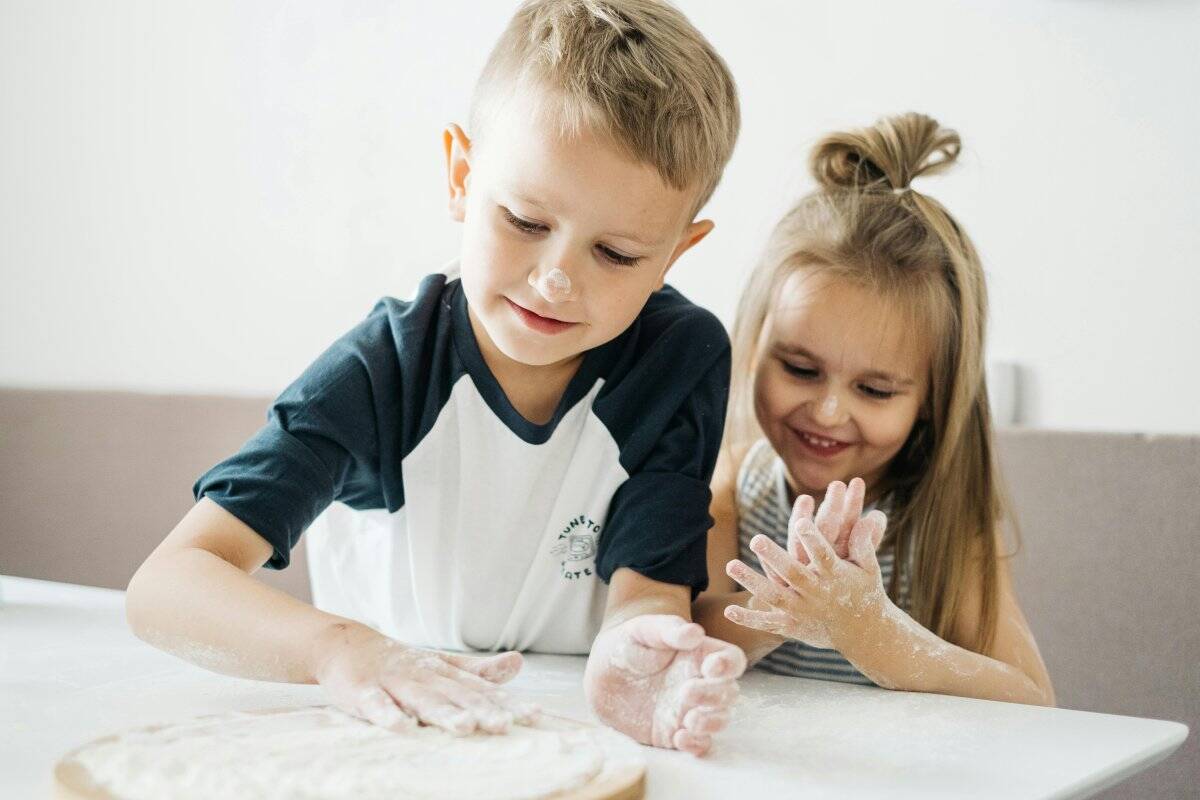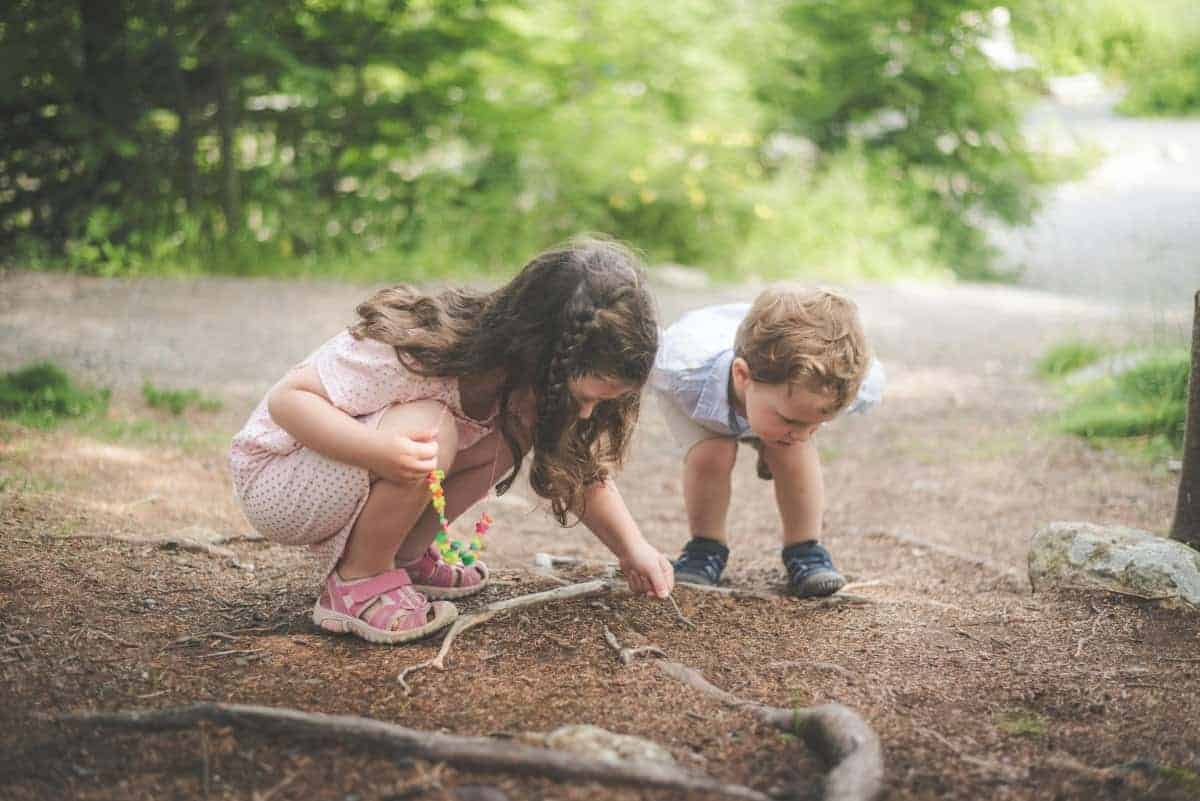These Everyday Moments Shape Your Child’s Brain
Everyday interactions—like sharing a smile, reading a bedtime story, or simply chatting at breakfast—are more powerful than they seem. These ordinary moments quietly sculpt your child’s rapidly growing brain, laying the foundation for future learning, emotional intelligence, and resilience. While we often focus on big milestones, it’s the subtle, daily connections that truly matter. Understanding how these routine experiences shape brain development helps us become more intentional in our parenting. By paying attention to the small things, we nurture healthy minds for life.
1. Morning Greetings

A cheerful “good morning” or a warm hug does more than start the day—it actually helps your child’s brain regulate stress hormones and encourages emotional balance. Children who receive daily affirmations and gentle affection tend to feel safer and more secure. This sense of security activates neural pathways linked to trust and emotional regulation. In contrast, kids lacking these morning moments may experience higher anxiety. Simple greetings lay the groundwork for a resilient, connected mind.
2. Shared Mealtimes

Gathering around the table isn’t just about food—it’s a daily opportunity for connection and growth. Shared meals spark conversations that build vocabulary, strengthen emotional bonds, and teach children how to express themselves. Families who routinely eat together see children develop better language skills and empathy compared to those who eat alone. These moments introduce lessons about nutrition, manners, and sharing, all while nurturing a sense of belonging. Regular mealtimes truly nourish both mind and heart.
3. Story Time Rituals

Whether it’s a nightly bedtime story or a spontaneous tale spun on a rainy afternoon, story time is a brain-building powerhouse. Reading together forges new neural pathways, boosts your child’s imagination, and enhances their attention span. These rituals also create a safe, comforting space for emotional exploration. Children learn to identify feelings and relate to others through characters and adventures. Consistent storytelling strengthens both literacy and the parent-child bond, fostering emotional intelligence for years to come.
4. Playtime Adventures

Play is more than fun—it’s essential for problem-solving, creativity, and social skills. Whether building with blocks or exploring outdoors, playtime activates multiple areas of the brain, promoting flexible thinking. Children who engage in group play or outdoor activities learn adaptability and teamwork, skills less developed in those who primarily spend time alone with screens. Both structured games and imaginative free play are crucial for nurturing a child’s ability to connect, cooperate, and thrive.
5. Asking Questions

Patiently answering your child’s endless “why” questions fuels curiosity and critical thinking. Each response helps their brain connect ideas and expand knowledge. Children whose questions are encouraged become more confident and adept at problem-solving. In contrast, those discouraged from asking may shy away from challenges and doubt their abilities. Nurturing curiosity in everyday moments shapes a lifelong love of learning and an agile, inquisitive mind.
6. Handling Mistakes

When a child spills juice or stumbles on a math problem, your response is crucial. Calmly guiding them through mistakes—instead of scolding—models resilience and a growth mindset. Supportive reactions encourage children to view setbacks as learning opportunities, increasing their willingness to try again. In contrast, punitive responses can trigger shame, anxiety, and avoidance. Children who receive patient guidance develop stronger emotional regulation and self-esteem, key ingredients for lifelong success and adaptability.
7. Bedtime Routines

Consistent bedtime rituals—such as brushing teeth, reading stories, or sharing gentle conversation—signal safety and comfort to your child’s brain. These calming routines help regulate sleep patterns, leading to better memory consolidation and emotional well-being. Children with stable bedtime routines experience deeper rest and feel more secure than those with irregular schedules. Regularity at night nurtures cognitive growth and reassures children that the world is a predictable, safe place to end each day.
8. Offering Choices

Allowing children to make everyday decisions—like choosing their outfit or snack—strengthens neural circuits for independence and decision-making. Even small choices empower kids and teach them to trust their judgment. Children who are given age-appropriate options develop greater self-confidence and problem-solving skills than those whose every move is micromanaged. Offering choices in daily routines helps cultivate a sense of ownership and prepares children for more complex decisions as they grow.
9. Expressing Emotions

Encouraging children to name and share their feelings nurtures emotional intelligence and empathy. When you discuss emotions—like talking after a tough day—kids learn healthy coping strategies and how to regulate their moods. Children who practice expressing emotions openly are better equipped to handle stress than those taught to suppress their feelings. These simple conversations lay the groundwork for understanding, connection, and resilient mental health throughout life.
10. Exploring Nature

Outdoor adventures—whether it’s a walk in the park, gardening, or simply observing clouds—activate your child’s senses and spark curiosity. Nature-rich experiences stimulate the brain’s sensory pathways, improving focus and concentration. Regular time outdoors is linked to lower stress and greater creativity. In contrast, children who spend most of their time indoors often show reduced attention spans and less imaginative play. Nature exploration nourishes both mind and mood, setting the stage for lifelong curiosity.
11. Helping with Chores

Involving children in household tasks—like setting the table or watering plants—builds responsibility, teamwork, and fine motor skills. These simple activities require planning and cooperation, turning daily routines into learning opportunities. Children who regularly help with chores develop a stronger sense of self-efficacy and persistence compared to those who are not involved. Chores teach kids they are capable contributors, fostering confidence and a cooperative spirit that lasts well beyond childhood.
12. Navigating Friendships

Everyday moments with peers—like sharing toys, negotiating turns, or resolving small disputes—shape a child’s social cognition and empathy. Through these interactions, children learn to see things from different perspectives and practice conflict resolution. Kids encouraged to foster friendships and work through challenges gain important social skills and adaptability. In contrast, those shielded from peer conflicts often struggle with cooperation and understanding others. Friendship lessons learned early echo throughout a child’s social development.
13. Practicing Gratitude

Encouraging children to express thanks—through simple “thank yous” or keeping a gratitude journal—builds positive neural pathways and emotional resilience. Regular gratitude practice is linked to lower anxiety and a brighter outlook on life. Children who make gratitude a habit tend to be happier and more optimistic than those who don’t. Fostering thankfulness in daily life helps your child develop a mindset that supports well-being and stronger relationships.
14. Listening to Music

Singing songs together or simply listening to music stimulates memory, language development, and emotional connection. Music activates numerous brain regions, supporting everything from rhythm to creative thinking. Children exposed to a variety of music genres often show stronger creativity, better rhythm, and more flexible thinking than those with limited musical experiences. Whether soothing bedtime melodies or upbeat tunes for play, music weaves joy and learning into everyday routines.
15. Celebrating Small Wins

Recognizing your child’s achievements—even small ones like tying shoelaces or sharing kindly—reinforces self-worth and motivation. Positive feedback activates neural reward circuits, turning effort and learning into enjoyable experiences. Children who are regularly acknowledged for their efforts develop stronger perseverance and enthusiasm for challenges. In contrast, kids whose successes are overlooked may lose motivation. Celebrating small wins every day builds confidence and inspires a growth mindset that lasts a lifetime.
Conclusion

Collectively, these everyday moments—morning greetings, shared meals, story time, and more—build a nurturing environment where your child’s brain can truly flourish. It’s the small, consistent actions that shape cognitive skills, emotional intelligence, and social confidence. By being mindful of our daily interactions, we empower children to grow, adapt, and thrive. Your attention to the little things makes a profound difference. So, savor these ordinary moments—they are the building blocks of your child’s lifelong well-being and resilience.
.article-content-img img { width: 100% }




